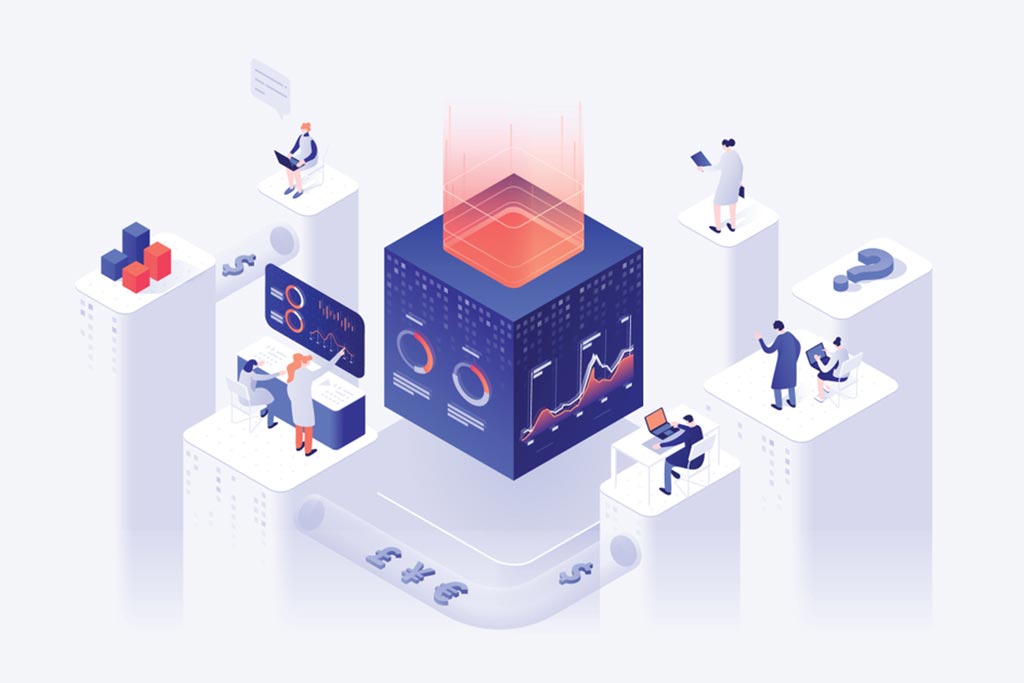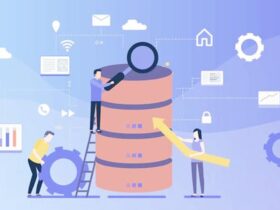In the 1970s Edgar Codd established the relational database model. Many of our current database structures are hierarchical. The structured database architecture has been considered since then. Most people in the industry were also using the relational paradigm.
Database Development may be a process of designing data. If you would like to understand more about it, then you’re right here on this page. Here you’ll come to understand database development and its uses and its features and career prospects.
What is Database Development?
Database application development is the process of obtaining real-world requirements, analyzing requirements, designing the info and functions of the system, then implementing the operations within the system.
About Database Development
The database development process is a crucial aspect of database engineering. A database system is an important component of the larger enterprise data system. Database development may be a process of designing, implementing, and maintaining a database system to satisfy the strategic or operational needs of a corporation or enterprise like improved customer support and customer satisfaction, better production management in a corporation, better inventory management, and more accurate sales forecasting.
The database development process is beneficial to develop different types of relations between data in a corporation, which can be further easily accessed by the user or the administrator.
Normally, a data system is that the larger environment that surrounds a database. We will say that databases may be a part of a data system. a data system contains an outsized number of knowledge or information that incorporates all the results that the client should ask or order to the server. We will say that the knowledge system is the largest platform within the management system.
Why choose Database development?
Databases are a set of organized information that will easily be accessed, managed, and updated. Database systems are vital to your business because they convey information associated with your sales transactions, product inventory, customer profiles, and marketing activities.
Moreover, The globe produces a large amount of data per day — more than 2.5 quintillion bytes to be precise. And the amount is just increasing.
About every enterprise depends on databases to manage, coordinate, and use their ever-growing data sets. That is where database developers enter the image. Database engineers assist companies in harnessing the influence of technology through a range of functions, from intellectual property and consumer data to accounting and payroll.
It’s a rapidly rising sector, with a strong competition for jobs database developers. Per the Bureau of Labor Statistics, database management and growth jobs are expected to rise 11% between 2016 and 2026, surpassing any other occupations.
Who uses Database development?
A database may be a collection of knowledge and management systems that are used for creating and managing databases. and corporations like Microsoft, IBM, SAP, etc. They use the Database for his or her data to gather. Database developers make sure that management systems can handle massive quantities of knowledge.
Certification for Database development
They say Certification is that the step towards your career path and yes you’ll get certified as a Database developer too. Certifications in information technology database management demonstrate your skills to a company and strengthen your technical knowledge. The below are a number of the most prestigious database certifications:
- IBM Certified Database Administrator – DB2.
- Microsoft SQL Server database certifications.
- Oracle Certified Professional, MySQL 5.7 Database Administrator.
- Oracle Database 12c Administrator.
- SAP HANA: SAP Certified Technology Associate.
Features of Database development
- Data sharing.
- Data independence.
- Transaction processing.
- Provision for multiple views of knowledge.
- Backup and recovery facilities.
Job Responsibilities
- Provide guidance and support to Application Developers.
- Assist with schema design, code review, SQL query tuning.
- Install, tune, implement, and upgrade DBMS installations.
- Write and deploy SQL patches.
- Upgrade and improve application schema and data upgrades
- Create modern databases to satisfy the requirements of consumers and users
- Create database code to execute particular functions, such as data extraction for reports, data changes, or data deletion.
- Alternately, you should update and modify current databases.
- Create market intelligence reports by using databases.
- Ascertain the emerging information technology and enterprise programs adhere to database norms and specifications
- Produce information technology documents with new and developed applications.
Job Role
As the database developers are liable for design or code or Installing. Their Job is Split into a number of the roles they manage. and that they are:
- Remote Database Developer.
- SQL Server Database Developer.
- SQL Database Developer.
- Senior Database Developer.
- Junior Database Developer.
- Technical Database Developer.
- Oracle Database Developer.
Top Location for Database development Job
These are the cities you’ll build your career as a Database developer
- Pune
- Mumbai
- Chennai
- Ahmedabad
Name of the businesses hiring for a Database development roles
These are the very best companies
- Oracle
- Mindtree
- Sage IT India
- Amazon
- Oloop technology.
Salary packages for a Database development roles
The average salary for a database developer is ₹ 6.34 LPA in India. And salaries may differ from company to company
Where and the way we are using this technology in real-time?
- Databases are used almost everywhere including banks, retail, websites, and warehouses.
- Banks use databases to stay track of customer accounts, balances, and deposits.
- Retail stores can use databases to store prices, customer information, sales information, and quantity available.
Does one need basic skills to wish to seek out about this course?
- Ability to try to Data Modelling
- PL SQL KNOWLEDGE AND RDBMS
- Physical Schema design for given Database
- High-availability & disaster recovery design, interaction with network and system administrators
- Debugging and optimization skills
Are you unsure of the network on which you’ll be working? Concentrate on improving the SQL and programming abilities. Since each framework is built and uses the same SQL format, the coding skills you acquire are applicable.
Conclusion
Well, To progress in database development roles, you must also learn a strong set of soft skills.
Database development roles routinely use strategic analysis skills when converting enterprise problems into database solutions. They collaborate with nontechnical customers to ensure that all databases operate properly. Additionally, they collaborate regularly with executives and management on IT programs and goals.
Along with technological abilities, database developers must show strategic thought, teamwork, and leadership abilities to convey technical projects to the majority of the organization in plain, succinct terms.






Leave a Reply